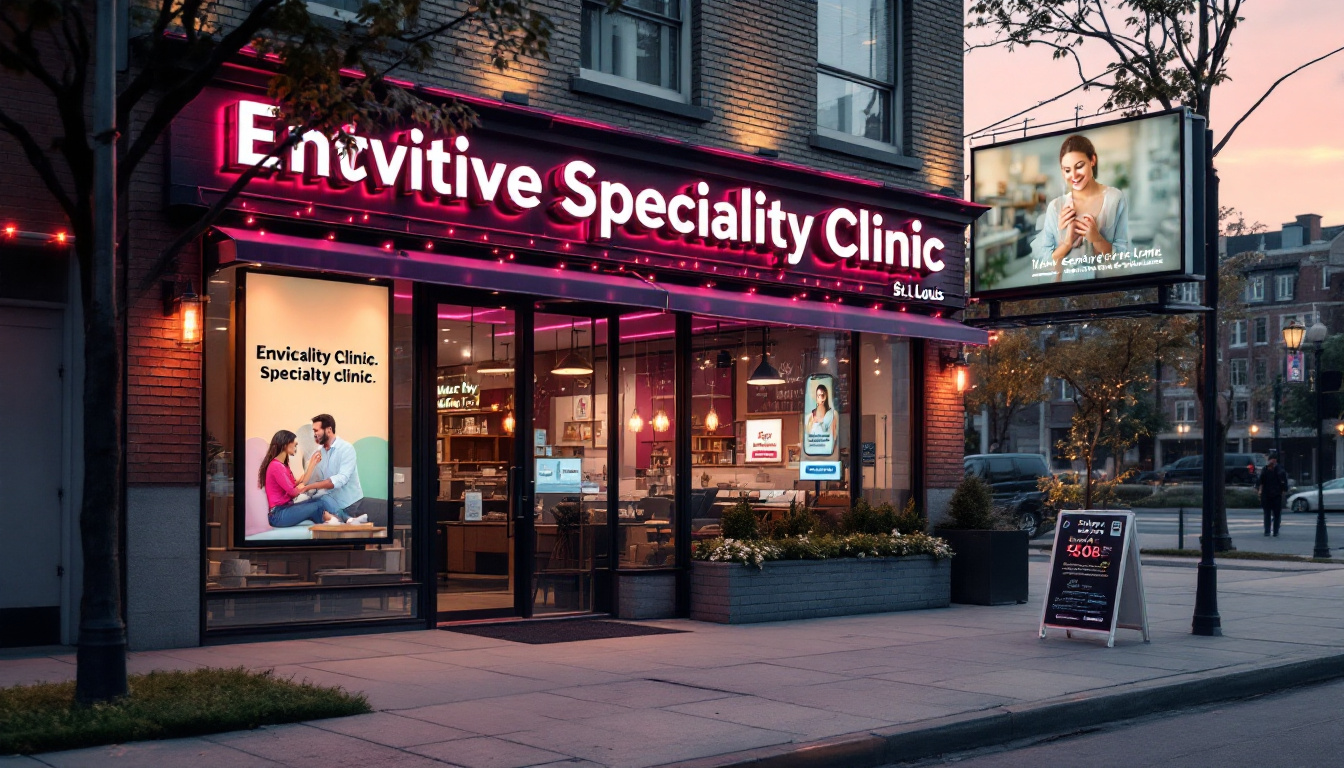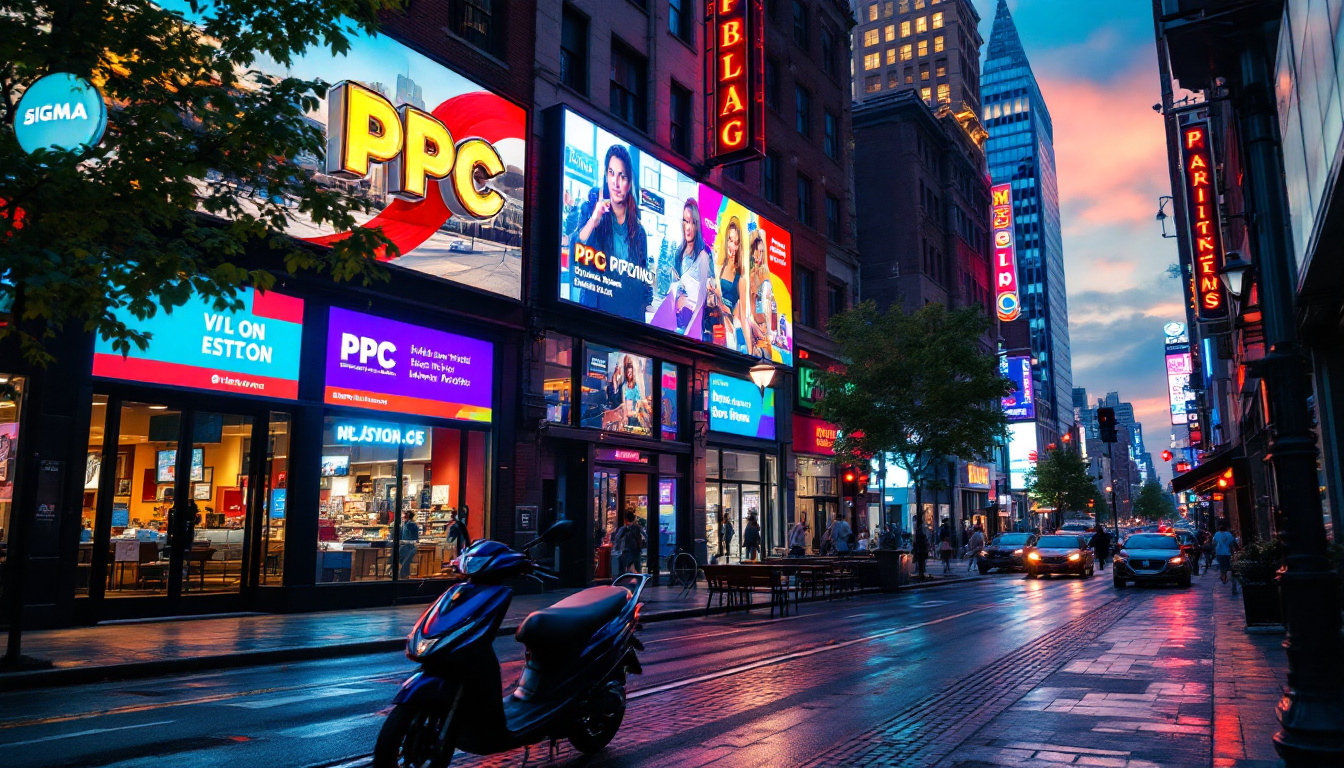Common Myths About PPC for St. Louis, MO Businesses

Pay-Per-Click (PPC) advertising is often misunderstood, particularly by small to mid-sized businesses in St. Louis, MO. The general perception is clouded by myths that can prevent local companies from leveraging this powerful marketing strategy. In this article, we aim to debunk some of the most common myths surrounding PPC advertising to help St. Louis entrepreneurs make informed decisions for their business growth.
Debunking the 'PPC is too expensive' myth
One of the most prevalent misconceptions is that PPC advertising is prohibitively expensive for small businesses. Many local entrepreneurs believe that only larger companies with extensive marketing budgets can afford to invest in PPC campaigns. However, this is far from the truth.

PPC can be tailored to fit any budget. In fact, platforms like Google Ads allow businesses to set their daily spending limits, enabling them to control costs effectively. This flexibility means that St. Louis businesses can engage in PPC advertising regardless of their financial capacity.
Moreover, the ROI (Return on Investment) potential is significant. When executed correctly, PPC can offer a much higher return than traditional advertising methods. Tracking conversions allows businesses to gauge the effectiveness of their campaigns and make data-driven adjustments as needed, often leading to lower customer acquisition costs over time.
Budgeting for PPC
When budgeting for PPC, it’s essential to consider the following:
- Target audience: Understand who you are trying to reach and the keywords they are using.
- Bid settings: Choose manual or automated bidding strategies based on your comfort level and goals.
- Experimentation: Start with a small budget to test different ad copy and keywords.
- Adjustments: Monitor the performance and adjust bids or budgets as necessary.
In addition to these foundational elements, it’s crucial to conduct thorough keyword research. This process involves identifying not only high-traffic keywords but also long-tail keywords that may have less competition and lower costs per click. Long-tail keywords often reflect more specific search intents, which can lead to higher conversion rates. For instance, instead of just targeting "shoes," a local retailer might focus on "affordable running shoes in St. Louis," effectively narrowing their audience and increasing relevancy.
Another important aspect of PPC budgeting is the consideration of seasonal trends and market fluctuations. Certain times of the year may see increased competition for specific keywords, which can drive up costs. By analyzing historical data and trends, businesses can strategically plan their campaigns to capitalize on peak seasons while avoiding unnecessary expenditures during slower periods. This proactive approach not only helps in managing budgets but also maximizes the potential for higher returns during critical sales windows.
Why PPC is not just for big companies
Another common myth is that PPC campaigns are only effective for large corporations with expansive visibility or established brands. While big companies often dominate the PPC landscape, it doesn’t mean smaller enterprises cannot compete.
PPC allows even the tiniest businesses in St. Louis to reach specific audiences. The key lies in effectively targeting based on demographics, interests, and behaviors. This level of granularity can help artisan shops, local services, and startups to target and engage potential customers that would otherwise bypass them in organic search results.
Additionally, the ability to test various advertisements and creative approaches means that smaller businesses can explore different strategies without committing to long-term contracts. This nimbleness in adjusting tactics can lead to remarkable success stories.
Case studies of local businesses
Take, for instance, a small café in St. Louis that utilizes PPC to attract local customers:
- By targeting keywords like "best coffee in St. Louis," the café effectively reaches its audience.
- Using location targeting, it only serves ads to users within a few miles of the shop.
- The café regularly adjusts its campaigns based on performance, ensuring maximum ROI.
Another compelling example is a local landscaping company that has successfully harnessed the power of PPC advertising. By focusing on seasonal keywords such as "spring lawn care" and "fall landscaping services," the company has been able to capture leads during peak times when homeowners are most likely to seek assistance. They also utilize ad extensions to showcase customer testimonials and before-and-after photos, which not only enhance their credibility but also engage potential clients visually. This strategy has resulted in a significant increase in inquiries and bookings, demonstrating that even niche services can thrive through targeted PPC efforts.
Moreover, a boutique clothing store in St. Louis has leveraged PPC to promote its unique offerings. By creating ads that highlight limited-time promotions and exclusive collections, the store has been able to drive foot traffic and online sales simultaneously. They utilize remarketing strategies to re-engage visitors who showed interest but did not make a purchase, effectively keeping their brand top-of-mind. This approach not only boosts conversion rates but also fosters brand loyalty among customers who appreciate the personalized touch that smaller businesses can provide.
Understanding the role of analytics in PPC
Another key aspect of PPC that often goes unnoticed is the vital role of analytics. Many business owners think PPC is all about driving traffic but fail to recognize the importance of analyzing that traffic.
Analytics provide insights into user behavior, campaign performance, and overall engagement metrics. It’s not merely about impressions or clicks; the real victory lies in conversions—turning those clicks into paying customers. By understanding how users interact with ads, businesses can make informed decisions that enhance their marketing strategies, ensuring that every dollar spent on PPC is optimized for maximum return on investment.
Important analytics metrics to monitor
In the realm of PPC, several analytics metrics warrant careful consideration:
- Click-Through Rate (CTR): This indicates how effectively your ads are attracting clicks.
- Conversion Rate: This metric helps you understand how many clicks lead to actual sales.
- Cost per Conversion: Knowing what each conversion costs helps in budget allocation.
- Quality Score: This score from Google reflects how relevant your keywords, ad copy, and landing pages are.
By leveraging analytics, St. Louis businesses can refine their PPC strategies for better yields and more substantial impacts on their bottom line. Furthermore, tracking user behavior through advanced analytics tools can reveal patterns that may not be immediately apparent. For instance, understanding the times of day when users are most likely to convert can help in scheduling ads for optimal exposure. Additionally, segmenting your audience based on demographics or interests can allow for more targeted ad placements, increasing the likelihood of engagement and conversions.
Moreover, integrating A/B testing into your analytics strategy can significantly enhance your PPC campaigns. By experimenting with different ad copies, visuals, and calls to action, businesses can identify which variations resonate best with their target audience. This iterative process not only improves ad performance but also fosters a culture of continuous improvement within marketing teams, ensuring that they stay ahead of industry trends and consumer preferences.
How PPC can provide immediate results
One of the standout advantages of PPC advertising is its capacity to deliver immediate results. As soon as a PPC campaign goes live, ads can appear within minutes in response to relevant searches. This can be particularly advantageous for businesses looking to promote time-sensitive offers or events. For instance, if a local restaurant is hosting a special event or a limited-time menu, a well-timed PPC campaign can drive immediate foot traffic and online reservations, maximizing the impact of the promotion.

Unlike SEO, which often requires time and sustained effort to see results, PPC acts as a catalyst for immediate visibility. When potential customers in St. Louis search for keywords that are linked to your product or service, your ad can be there to greet them in real time. This immediacy not only boosts brand awareness but also fosters a sense of urgency among consumers, compelling them to act quickly before the opportunity passes. Furthermore, the ability to adjust bids and budgets in real-time allows businesses to respond dynamically to market trends and consumer behavior, ensuring optimal performance throughout the campaign.
Utilizing PPC for time-sensitive promotions
Here’s how to use PPC effectively for timely initiatives:
- Create dedicated landing pages for seasonal promotions or events.
- Target keywords associated with those events to draw in relevant traffic.
- Set up ad variations to test which messaging resonates best for quick optimization.
Additionally, leveraging ad extensions can significantly enhance the effectiveness of your PPC campaigns. By incorporating features such as site link extensions, callout extensions, and structured snippets, you can provide potential customers with more information at a glance, increasing the likelihood of clicks. For example, if you’re promoting a flash sale, using countdown timers in your ads can create a sense of urgency, encouraging users to act fast. Moreover, analyzing the performance data from your PPC campaigns allows you to refine your strategy continuously, ensuring that each subsequent promotion is even more effective than the last.
PPC vs. SEO: Which is better for your business?
Finally, a widespread debate exists among marketers regarding PPC versus SEO. Many St. Louis business owners wonder which strategy would yield superior results for their operations. The truth is that both have distinct pros and cons, and often, they work best in tandem.
PPC offers results that can be measured in real-time, whereas SEO is a long-term strategy that builds over time. The optimal approach is to harness the strengths of both methods to create a well-rounded digital marketing strategy that offers both immediate visibility and sustained growth.
Finding the right balance
To find the perfect balance for your St. Louis business, consider the following:
- Evaluate your budget: Can you invest in both PPC and SEO simultaneously?
- Analyze your audience’s behavior: Are they more likely to respond to instant ads or organic search results?
- Track performance metrics: Use analytics to review which channel is bringing in the most conversions.
In conclusion, dispelling the myths associated with PPC and understanding its role in the marketing ecosystem can empower St. Louis businesses to maximize their advertising efforts. With the right knowledge, businesses of any size can tap into the impressive potential that PPC advertising offers.

As a Google Ads expert, I bring proven expertise in optimizing advertising campaigns to maximize ROI.
I specialize in sharing advanced strategies and targeted tips to refine Google Ads campaign management.
Committed to staying ahead of the latest trends and algorithms, I ensure that my clients receive cutting-edge solutions.
My passion for digital marketing and my ability to interpret data for strategic insights enable me to offer high-level consulting that aims to exceed expectations.





























